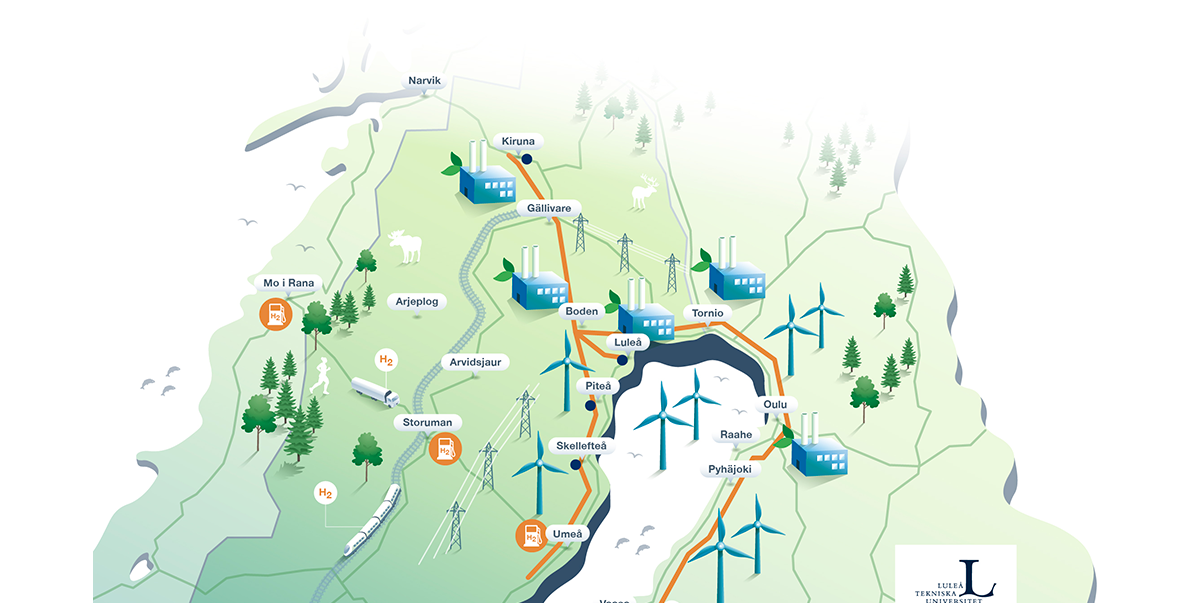The Luleå University of Technology and RISE present a new report on hydrogen pipelines
This week, Luleå University of Technology and the research institute Rise presented a new report on hydrogen pipelines. The idea is for hydrogen to be transported from Finland along long distances in northern Sweden.
– It is the biggest thing that has happened since Sweden built the railways, says Johan Sandstedt, Rise.

In a preliminary study from LTU and Rise, the results show that a new type of infrastructure may be needed with hydrogen lines as a complement to power lines. This is to cope with the industry’s large hydrogen and energy needs in northern Sweden.
– This is gigantic. The biggest thing that has happened since Sweden built the railways. Today, Sweden has unique conditions to both contribute to climate change and to govern global capital, says Johan Sandstedt, who works with industrial change at the research institute Rise.
– Our preliminary study assumes that there are great advantages to hydrogen pipelines when transporting large amounts of energy. Regardless of whether hydrogen will be produced very close to an industry, or close to the electricity production itself, hydrogen pipelines will be needed. The hydrogen pipelines that are placed below the ground surface can be built by individual actors and the hydrogen is sold bilaterally. Or larger infrastructure can be built for the transport and storage of hydrogen that is used jointly, something that opens up a new hydrogen market, says Cecilia Wallmark, operations manager for the Centre for Hydrogen Energy Systems Sweden, vid Luleå tekniska universitet. The feasibility study has been carried out by Luleå University of Technology and RISE in 2022 in collaboration with 24 actors with interests in hydrogen in northern Sweden, and has been partially financed by Vinnova.
This project has shown that the investment for hydrogen infrastructure in the form of hydrogen pipelines or power lines involves relatively low costs compared to the investments needed in process technology and for the production of the gas itself, despite potentially very large investments and constructions for infrastructure. A new type of infrastructure is emerging that lacks appropriate regulations for ownership and governance. Today, there are large gaps in legislation when it comes to building a hydrogen infrastructure in Sweden. To reduce the uncertainty of investing and facilitate development, the preliminary investigation recommends a more thorough investigation and development of the legislation surrounding the hydrogen system and that Sweden adopt a national strategy for hydrogen, based on the Swedish Energy Agency’s proposal.
Read more about LTU and Rise collaborationhere!





